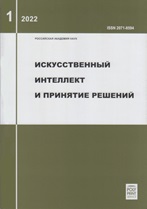|
This article is cited in 4 scientific papers (total in 4 papers)
Decision analysis
Bounded rationality and decision making
O. P. Kuznetsov
V. A. Trapeznikov Institute of Control Sciences of Russian Academy of Sciences, Moscow, Russia
Abstract:
This paper considers the theory of bounded rationality, also known as behavioral economics developed by D.Kahneman, A.Tversky, R.Thaler and K.Stanovich. This theory demonstrates that human beings often act nonrationally not only due to objective reasons, such as the necessity of decision making under uncertainty and constraints on memory, but also due to inability to make use of their own intellectual tools. This is explained by how fast and slow types of cognitive processes interact. The fast system (System 1) is implemented with minimal control of consciousness and the slow system (System 2) involves consciousness and cognitive efforts. System 1 is working constantly and is making routine decisions while System 2 is involved in non-standard situations. However, System 2 minimizes efforts and does not always fully use its reasoning and estimating abilities due to “cognitive miserliness”. The role of emotions in decision making as a concept introduced by the prominent neurobiologist A. Damasio contributes largely to this theory.
Keywords:
bounded rationality, decision making, behavioral economics, fast and slow cognitive processes, prospect theory, framing.
Citation:
O. P. Kuznetsov, “Bounded rationality and decision making”, Artificial Intelligence and Decision Making, 2019, no. 1, 3–15
Linking options:
https://www.mathnet.ru/eng/iipr157 https://www.mathnet.ru/eng/iipr/y2019/i1/p3
|

|




 Contact us:
Contact us: Terms of Use
Terms of Use
 Registration to the website
Registration to the website Logotypes
Logotypes







 Citation in format
Citation in format 
